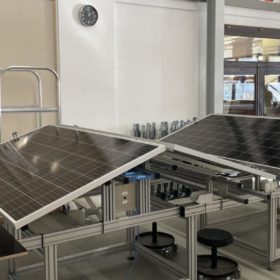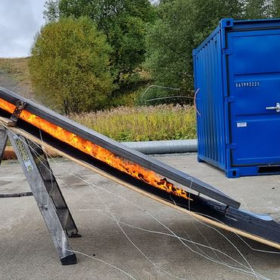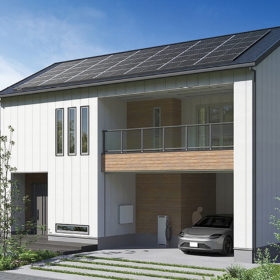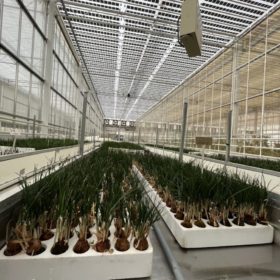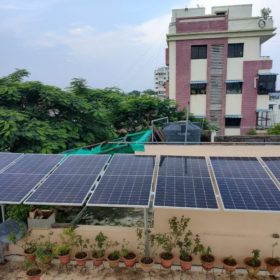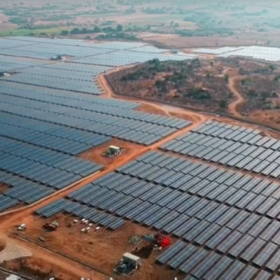New foldable solar system for rooftop applications
German manufacturer Kopp has developed an easy-to-install, four-module foldable PV array. The system uses n-type TOPCon solar modules with outputs of 430 W and efficiency ratings of 22.02%
PV system fires potentially exacerbated by gap between solar panels, rooftops
Norwegian researchers have published a new study showing that the space between solar panels and rooftop surfaces might play a critical role in contributing to PV system fires.
PV windows cut energy use by 40% in glazed buildings, says NREL
The US National Renewable Energy Laboratory (NREL) has shown that perovskite-based thin-film PV, transparent PV, and dynamic PV glazing technologies can reduce the energy use of glazed buildings by around 40% across eight regions in the United States.
Panasonic unveils vehicle-to-home system for PV-powered homes
Panasonic claims that its new vehicle-to-home system can increase the self-consumption rate of residential solar and storage capacity to 90%.
PV shade screens for greenhouses, agrivoltaics
A Saudi Arabian startup has developed a modular solar panel for agrivoltaic applications. It is specifically designed for locations with high solar radiation levels and protects plants and crops from excess sunlight.
SIMA-managed fund approves $1.999 million low-cost loan to Loom Solar
The Energy Access Relief Fund, managed by Social Investment Managers and Advisors (SIMA), has approved $1.999 million for a subsidized 5% USD financing to Loom Solar.
India installed 11.2 GW of solar in first nine months of 2022
The nation installed 9.3 GW of utility-scale solar, 1.3 GW of rooftop arrays, and 0.6 GW off-grid PV projects from January to September this year.
Poweron unveils new hybrid inverters for residential solar
The Indian manufacturer has introduced wall-mount hybrid solar inverters with nominal power ratings of 3.68 kW, 4.6 kW and 5 kW. The inverters are compatible with both lead-acid and Li-ion battery.
India added 3.3 GW of solar in Q3 2022
India installed 3,338 MW of new solar power capacity in the three months ending September. This included 2,602 MW from utility-scale solar, 485 MW rooftop, and 251 MW off-grid installations
“Commercial rooftop solar is growing by leaps and bounds”
Panasonic Life Solutions India provides “Made-in-India” solar modules and high-quality solar EPC solutions for commercial and industrial consumers. Targeting an increased share of the Indian rooftop PV market, it plans to include solar-plus-storage solutions for industrial consumers and residential solar kits in its offerings. Amit Barve, business unit head of solar at Panasonic Life Solutions India, speaks to pv magazine about the Indian market and their plans for future growth.
